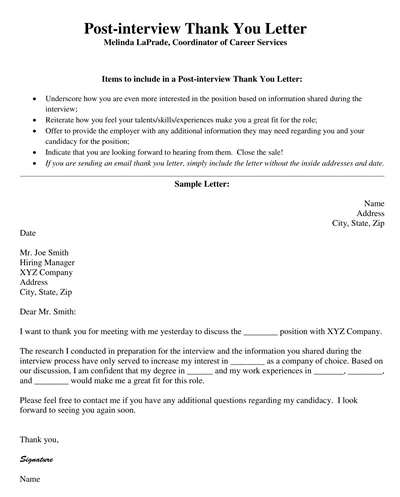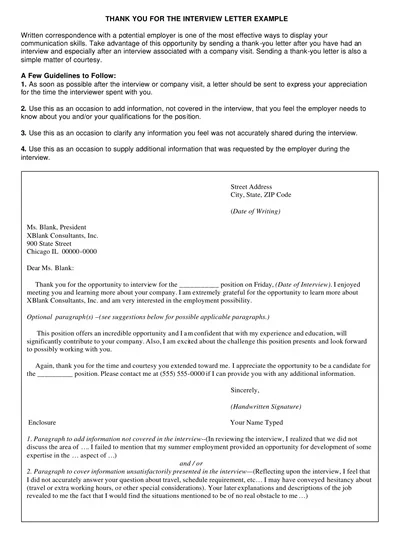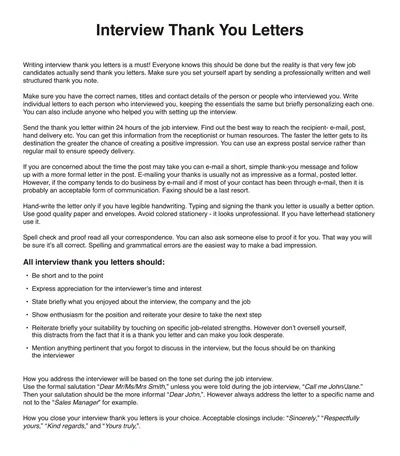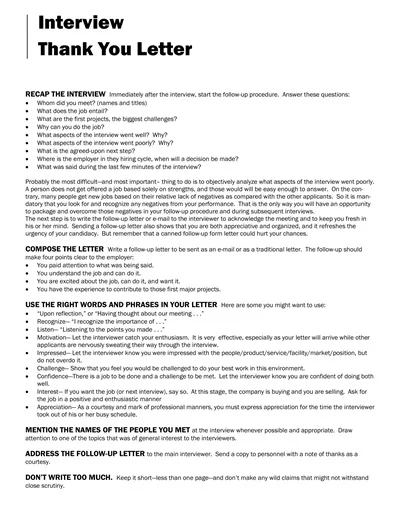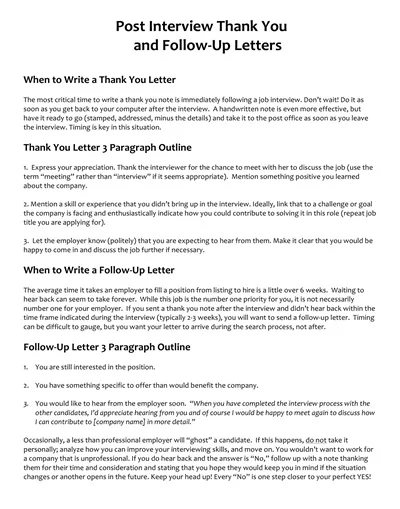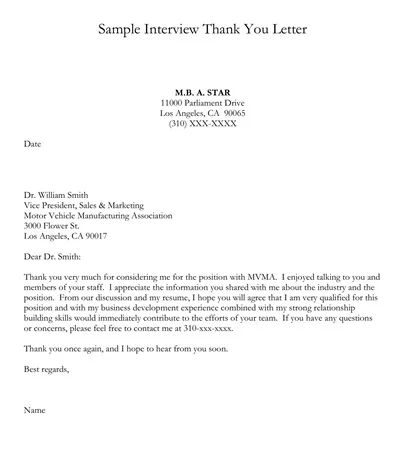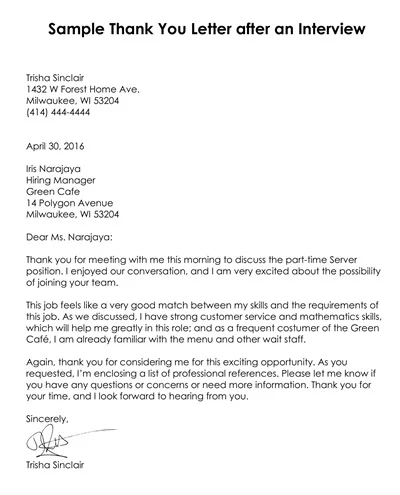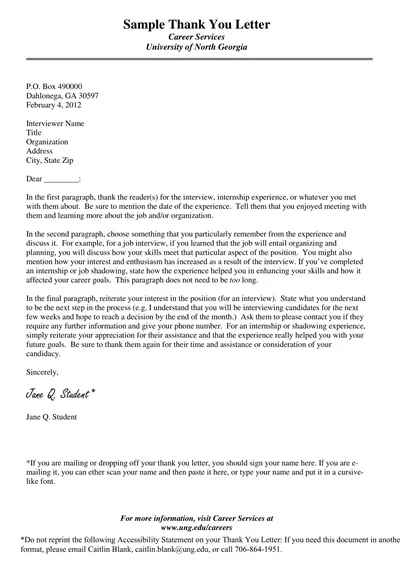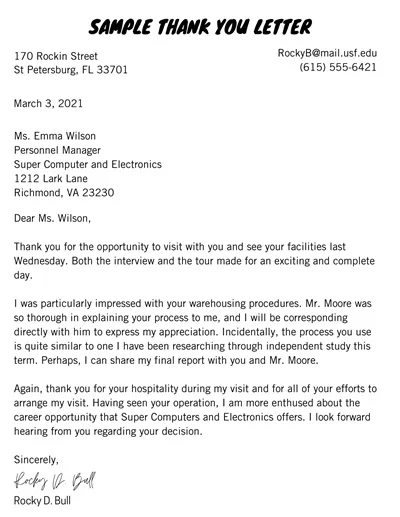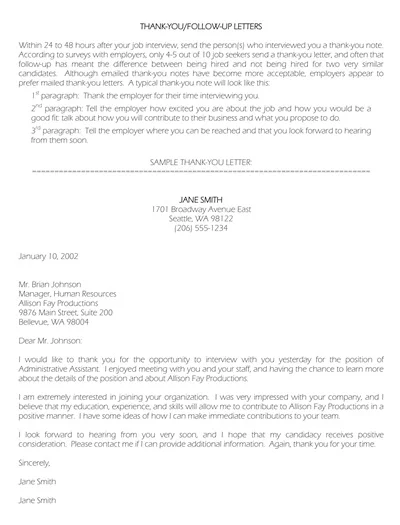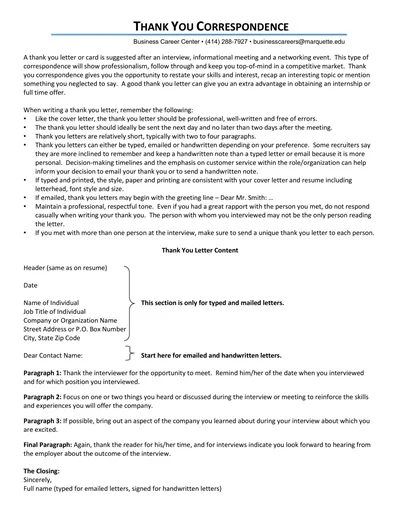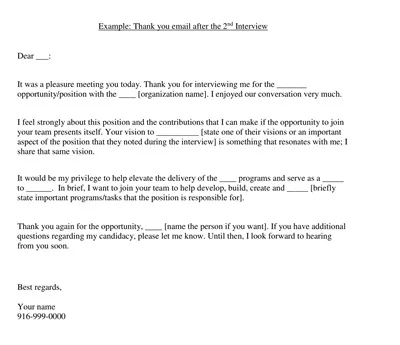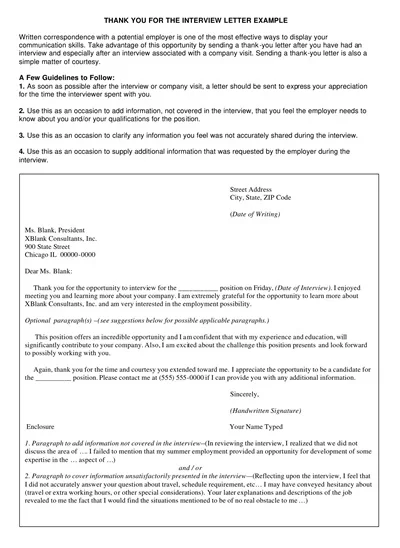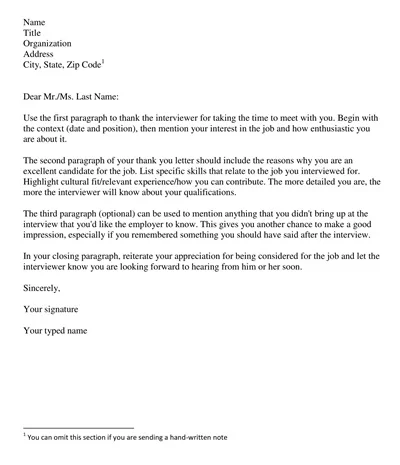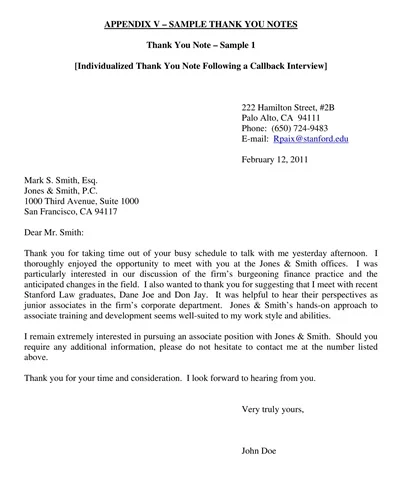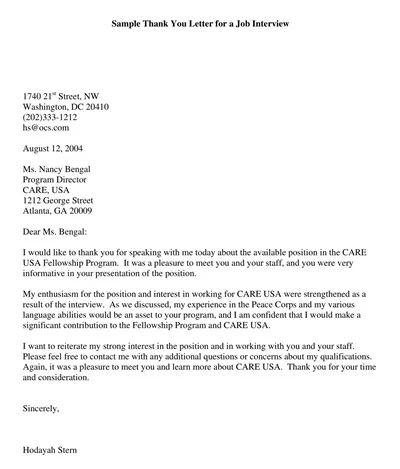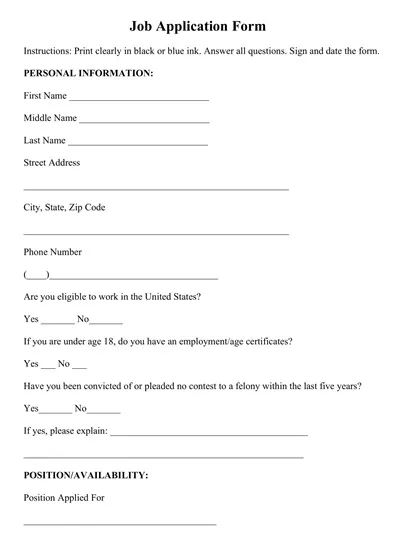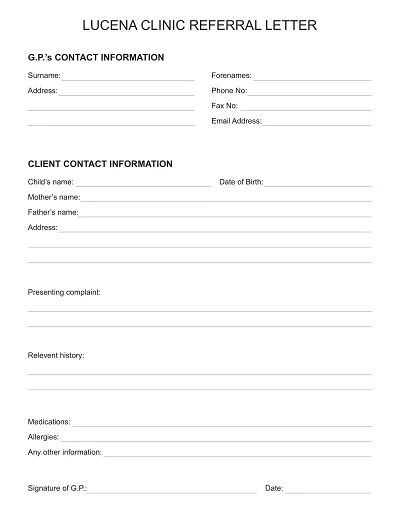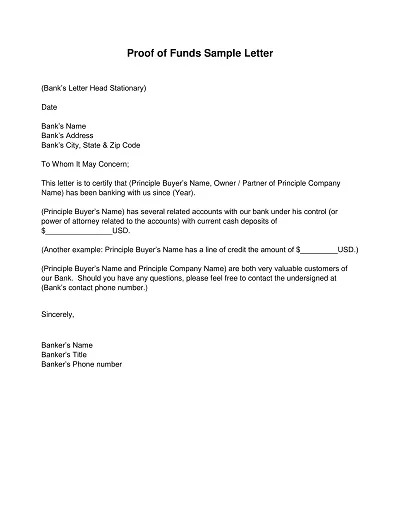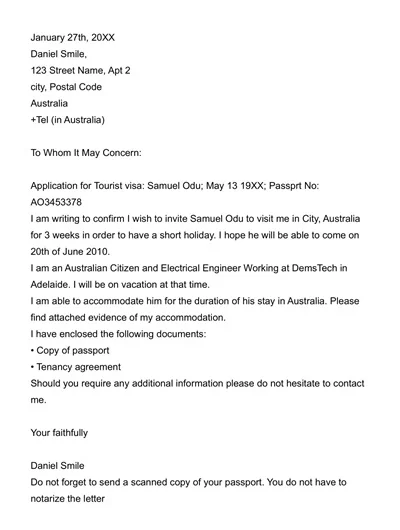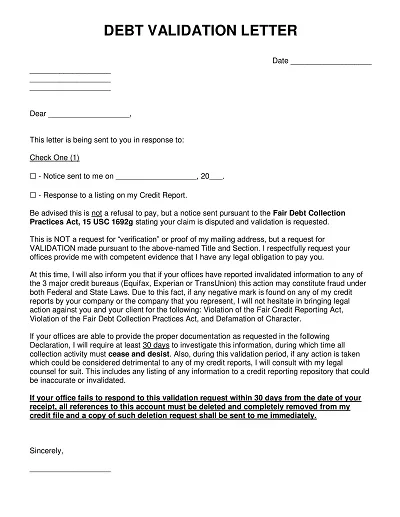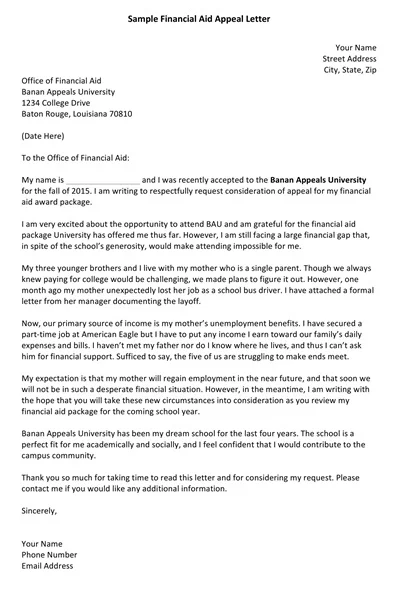An Interview Thank You Letter Template is an example of a letter that has already been written and that helps the candidate contact the potential employer after the interview. In the aggregate, this template commonly comprises some mandatory components, such as polite thanks for a chance to interview.
A brief reexpression of the aspects where the candidate is interested in the job and company, as well as other details that suggest the person fits the job description. For this reason, a thank you letter indeed portrays professionalism and good etiquette, and the candidate remains unique in the hiring manager’s mind.
Download Free Sample Interview Thank You Letter Templates
What is an Interview Thank You Letter?
A ‘Thank You Letter’ is a formal letter written by the interviewer to the interviewers who have just interviewed him or her. It serves multiple purposes. I am beginning the subject email to restate my gratitude for the offered chance, and I am looking forward to the position and elaboration as to why the candidate is suitable.
In addition to that, it is also a figment of courtesy to make, and this is also an intelligent thing to do when one is out to write to the applicants. If one wants to give the impression that he/she is keen or that they were paying attention during the interview, several points could be mentioned, or the candidate could be asked questions that may have arisen.
Components of an Interview Thank You Letter
After a successful interview, the letter must include several primary things to be perfect. These components not only let your employer know that you are grateful for the opportunity to interview for the position but also provide a second chance to be persuasive and bring attention to the characteristics pertinent to the job.
- Greeting: In this case, you may wish to start with a formal introduction by greeting the interviewer by name of honor alongside surname.
- Express Appreciation: The letter should begin with acknowledging the favor of offering a chance to interview and sparing their precious time.
- Highlight Key Points: Emphasize the interview fragments or the company itself, such as specifying how careful and eager all the interlocutors were.
- Reiterate Interest: It is normal to mention that you are still interested in the position and the company.
- Address Questions: In addition to answering any questions or concerns that were not conversed during the interview, briefly explain them.
- Closing: Conclude by making a courteous, proactive, generalizing sentence that invites additional information and is also optimistically suggestive of future evaluations.
- Sign-off: Please sign the email with a proper and polite closing, such as “Sincerely” or “Best regards,” followed by your full name.
Importance of sending a Thank You Letter after an Interview
The thank you letter after the job interview pertains not only to the politeness of the candidate but also to a formality of expressing earnestness about the job. Some of the employees may perceive this act as a small gesture, while it could be a big statement that the job is wanted.
Making a Positive Impression
The most productive lesson they can learn from an interview is to write a thoughtful thank you letter, which helps them leave a favorable impression on the employer that they are worth being in that company. This points to the fact that sometimes, if you have been employed, let’s say you are polite, respectful, enthusiastic about the job position, etc.
Reinforcing Your Interest
It is indisputable that with the help of an appreciation missive, you proved your positive attitude toward the post. Trying to demonstrate to the hiring team that you have done what just they are willing to do might seem like a small thing that can help set you apart from the candidate who did not bother.
Highlighting Key Points
Since the thank you letter is to be brief, it is all right to briefly describe what you mentioned in the interview and how they relate to your strengths and achievements. It does this by repeating our ad, saying we are better fitted for the job in question as well as pupils and the person on the job with your special qualities.
Demonstrating Professionalism
Writing a thank you letter boosts professionalism and courtesy, and having one in your writing shows that you are considerate. It seems good for your personality, and you look like the kind of person who will keep to his or her word and answer a call.
Building Relationships
Last but not least, every thank you letter is a chance to make an interviewer aware of your existence in a specific company or organization and to become friendly with that person. It is also possible to have a positive experience that empowers the relationship—an especially valuable type of relationship for future positions and connections.
Dos and Don’ts of Sending Interview Thank You Letters
An Interview thank you letter is a proper way to thank the employer who has granted you a chance to interview for a specific position. It’s time to be a bit more formal and say, ‘Thank you for having the chance to speak with me. ‘ Express incredible appreciation for his time and state once again how much you want this job. However, some precautions must be taken while writing a thank you letter to avoid pitfalls that may cost one the job.
Do:
- Send promptly: The letter of appreciation should be sent as soon as possible, preferably within 24 hours, as proof of a candidate’s genuine interest in the interview.
- Be specific: If you were this active and alert during the interview, explain something from the interview to tell somebody.
- Personalize it: This is for the case where the candidate interacts with several people during the interview session and should follow up the interaction with a personalized message regarding each.
- Express gratitude: There is always a way to thank the interviewer for the time spent considering the candidate.
- Reiterate interest: Remember to state your eagerness to join the organization and take up the role again.
- Proofread: You should also look for and eliminate what are commonly known as grammatical mistakes and missed spelling.
Don’t:
- Overdo it: When addressing your message in writing, do not go around; you do not want to complicate a simple message.
- Be generic: do not choose the design layout to fit the basic design template; adapt it to yourself, thus illustrating the strength of the interview.
- Forget to highlight your skills: In not more than a paragraph, explain why you are suitable for the job because of how the interview discussion has unveiled it based on the questions you have answered.
- Use informal language: Throughout the letter, the to be used must ensure they adopt a proper business writing style.
- Neglect the format: While any format is more aesthetic than another, it’s important to use the common business letter format.
- Ignore follow-up instructions: If the interviewer expresses the best follow-up method, it is preferable to follow the instructions.
Why Send an Interview Thank You Letter?
After the interview, the follow-up is to express gratitude and create an element of a job application letter. As a start, it lets you re-emphasize the point that you desire to be hired and that it would be beneficial if it were with the company that offered the interview. In addition, it assists in reinforcing for the interviewer the good impression you created with him or her during the interview.
It brings out the pedagogy of such a keen thank you letter that not only writes well but takes time to be observant. This people’s participation is not only for questioning, which was never answered fully. It also allows you to raise issues that may have not been highlighted as necessary for further discussion. Now and then, it’s in a competitive job market when one notices little things like this that set you apart and get noticed by the interviewer, indicating that one is an organized person and is fond of the job.
How to Write an Interview Thank You Letter Template
An interview thank-you note is a better way when you already know some sort of politeness when you just want to insist, ‘I am very grateful to the interviewer for sparing a shower for me. ‘ However, it provides one with an opportunity to reiterate her interest in the job and add any other skills not qualified for the job in this open-ended question.
Here’s a step-by-step guide on how to write an effective interview thank-you letter:
Step 1: Gather Information
Kindly ensure that prior to writing the thank you letter, you have your interviewer’s name, the Vacancy that you are being considered for and your contact information properly written. According to the above suggestions you will be in a position to write a letter full of eloquence so that it can reach the intended recipient.
Step 2: Select Format Ideally
Two main modalities of interview thank-you letters are email or handwritten notes. While email is a beneficial communication medium as a style, it is essential to understand how to decide whether to use an e-mail, a phone call, or a face-to-face meeting.
Step 3: Express Gratitude
First of all, we must start the letter with five words of appreciation for the time you spent with the interviewer and the efforts that he/she has made. Words like thank, thanks, or gratitude may be limiting when expressing your gratitude, but simple phrases like thank you or I appreciate will work wonders.
Step 4: Reiterate Interest
Here is the chance to clarify any issues or express your wish to be enrolled in the specific position and company that you value. However, during the interview, it was reported that the features of the job or organization, as discussed earlier, were described as very engaging.
Step 5: Highlight Qualifications
If there are other aspects of your person that you were not able to highlight when applying for the job, perhaps due to the lack of time, then you might need to mention them in your thank you letter. This is also an opportunity to seek further clarity, so ask the interviewee if there is any issue that may have arisen during the interview that they wish to elaborate on.
Step 6: Edit and Proofread Your Writing
Finally, before forwarding the gratitude letter, ensure you have cross-checked it for any possible spelling or grammatical errors. You do not want to sound too low-level and unprofessional; this will make it difficult to attract and engage a good audience with your content.
Step 7: We’ll Be On Our Way within 24 Hours
Make sure that the response is brought forward within the first 24 hours of the meeting. This would provide a testimony that you are not only observant but also passionate about what you are doing.
Step 8: Follow Up
It is not a big issue for representatives not to call a post-interview within the first few days after the interview. Instead, a call or email can be made to reconnect and probably make a business proposition. It will show potential employers you are excited and keep them in touch.

